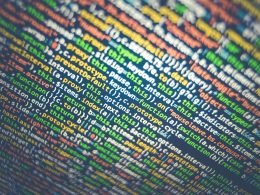C++ is among the top programming languages, and it’s commonly ranked among other popular languages such as Java and Python.
Whether you’re completely new to programming, or you’re well versed in other languages but just dipping your feet into C++, here are some tips for C++ development beginners.
Begin with the basics
It’s best to begin by understanding fundamental concepts like variables, data types, and basic input/output operations. Start with the essentials, which will lay a solid foundation for the more complex topics.
Get to know the syntax
C++ has a specific syntax that may differ to other languages you’ve come across. Pay attention to semicolons, braces, and proper indentation. Consistent coding style will make your code more readable and help prevent errors.
Use a good IDE
Choose an Integrated Development Environment (IDE) aimed at beginners. The best C++ IDE software includes Visual Studio, Code::Blocks, and Dev-C++. A good IDE can help with code completion, debugging, and project management.
Practice consistently
Consistent practice is key to learning any programming language. Even if you don’t have oceans of time, “little and often” is a good principle. Try to code daily, even if it’s just for a short time. Solve small problems or work on simple projects to reinforce your learning.
Understand pointers and references
Pointers and references are crucial concepts in C++. While they can be challenging at first, understanding them will greatly enhance your ability to write efficient code.
Learn about object-oriented programming (OOP)
C++ is an object-oriented language. Once you’ve got the basics under your belt, you’ll come across concepts like classes, objects, inheritance, and polymorphism. These are fundamental to many C++ programs.
Read and analyze code
Reading other people’s code can help you learn new techniques and best practices. Look for open-source projects or examples in textbooks to study.
Use end to end testing
The goal of end to end testing is to validate your code’s functionality and performance. Using end to end testing is a good way to ensure the integrity and functionality of applications from start to finish.
Write comments
It might sound funny, but comment on your own code. This will help you understand your own code later and is a good practice for when you start working on larger projects or with teams. Co-workers will be better placed in understanding your reasons for writing certain code and help solve any potential problems.
Try a productivity timer
Any task that requires deep concentration – which programming certainly does – can be challenging. The Pomodro Technique, which has gained traction in recent years, works by helping to set your mind on a specific task for a set time, e.g. 25 minutes.
A 2020 paper suggested using timers as a way to stay focused while working from home.
There are apps dedicated to the Pomodoro Technique, although you can use any timer app, such as the Clock app that comes with an iPhone.
Be patient with yourself
Learning C++ won’t happen right away. Even if you’ve coded in other languages before, there’ll be things that take time to bed in. Don’t worry about trying to learn absolutely everything on the first day. Remember sometimes doing less can be a good idea. Enjoy the process and try to be patient.








